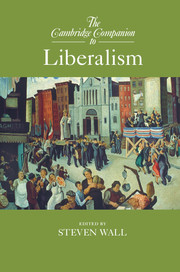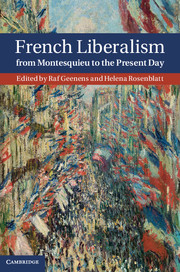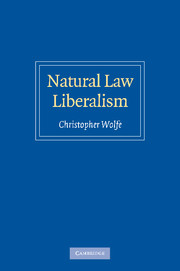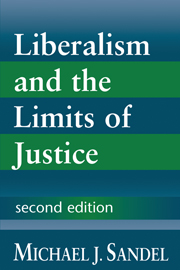The Cambridge Companion to Liberalism
The political philosophy of liberalism was first formulated during the Enlightenment in response to the growth of the modern nation-state and its authority and power over the individuals living within its boundaries. Liberalism is now the dominant ideology in the Western world, but it covers a broad swathe of different (and sometimes rival) ideas and traditions and its essential features can be hard to define. The Cambridge Companion to Liberalism offers a rich and accessible exploration of liberalism as a tradition of political thought. It includes chapters on the historical development of liberalism, its normative foundations, and its core philosophical concepts, as well as a survey of liberal approaches and responses to a range of important topics including freedom, equality, toleration, religion, and nationalism. The volume will be valuable for students and scholars in political philosophy, political theory, and the history of political thought.
- A single volume overview and guide to liberalism as a tradition of political thought
- Examines liberalism from the perspective of historical political thought and contemporary political theory and philosophy
- Surveys and contributes to ongoing debates in contemporary political theory
Product details
March 2015Paperback
9781107439412
468 pages
228 × 153 × 25 mm
0.69kg
Available
Table of Contents
- Introduction Steven Wall
- Part I. Historical Perspectives:
- 1. American liberalism from colonialism to the Civil War and beyond Mark E. Button
- 2. Liberalism and the morality of commercial society Jeremy Jennings
- 3. Liberalism:
- 1900–40 Alan Ryan
- Part II. Normative Foundations:
- 4. Contractarianism and the problem of exclusion Philip Cook
- 5. Public reason liberalism Gerald F. Gaus
- 6. Autonomy and liberalism: a troubled marriage? John Christman
- 7. Liberalism, neutrality, and democracy Steven Wall
- Part III. Topics and Concepts:
- 8. Contemporary liberalism and toleration Andrew J. Cohen
- 9. Liberalism and equality Richard Arneson
- 10. Disagreement and the justification of democracy Thomas Christiano
- 11. Liberalism and economic liberty Jeppe von Platz and John Tomasi
- 12. Liberalism and religion Nicholas Wolterstorff
- 13. Liberalism and multiculturalism Daniel Weinstock
- 14. Liberalism and nationalism Paul Kelly
- Part IV. Challenges:
- 15. Feminist critiques of liberalism Linda M. G. Zerilli
- 16. The republican critique of liberalism Frank Lovett
- 17. The conservative critique of liberalism John Skorupski.








